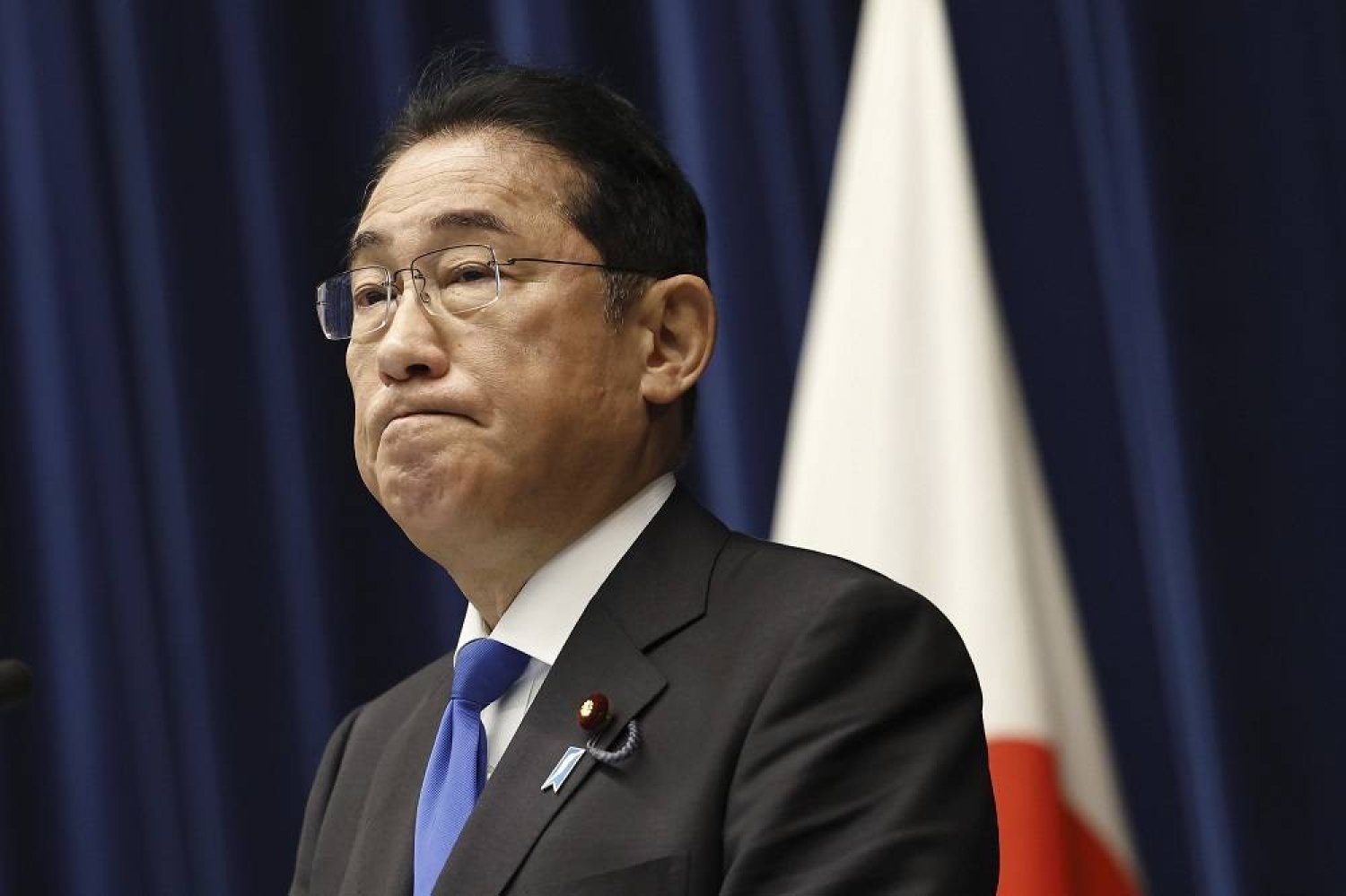
Kishida, the Prime Minister of Japan, is expected to resign, open the door for a new leader
On Wednesday, Prime Minister Fumio Kishida of Japan announced that he would be resigning next month. This decision was made in response to public dissatisfaction with his three-year term, which was tainted by political controversies and increasing living expenses. The announcement sparked a flurry of activity to find a replacement.
He disclosed his decision not to seek re-election as the leader of the Liberal Democratic Party (LDP) at a press conference, asserting that “politics cannot function without public trust.”
“I made this heavy decision thinking of the public, with the strong will to push political reform forward.”
In September, the LDP will conduct a contest to determine the party’s president and, consequently, the prime minister.
After assuming office in 2021, Kishida’s popularity suffered a decline as a result of revelations regarding the LDP’s affiliation with the controversial Unification Church.
His popularity was further diminished when a reserve fund of unrecorded political donations made at LDP fundraising events was disclosed.
He was also confronted with public discontent as wages failed to maintain pace with the increasing cost of living as Japan ultimately emerged from years of deflationary pressure.
Koichi Nakano, a professor of political science at Sophia University, stated that an incumbent prime minister of the LDP is prohibited from participating in the presidential campaign unless he is certain of securing a victory.
“It is comparable to the grand champion yokozunas of sumo.” You must not only prevail, but you must prevail with dignity.
His successor as LDP leader will be tasked with the responsibility of reestablishing the public’s trust in the party, as well as addressing the escalating geopolitical tensions with China, the increasing cost of living, and the potential re-election of Donald Trump as U.S. president next year.
U.S. President Joe Biden characterized Kishida’s tenure as “nothing short of historic” and commended his new national security strategy, support for Ukraine, and efforts to establish a new era of U.S.-South Korea-Japan cooperation.
“Prime Minister Kishida’s courageous leadership will be remembered on both sides of the Pacific for decades to come, and I will always be grateful to call him my friend,” Biden stated in a public statement.
Vedant Patel, spokesperson for the U.S. State Department, stated during a routine briefing that he was confident that the individual who succeeds Kishida will “further strengthen our alliance and partnership with Japan.”
MONETARY POLICY AND MILITARY BUILDING
Kishida, who served as Japan’s eighth-longest-serving post-war leader, deviated from previous economic policy by rejecting corporate profit-driven trickledown economics in favor of promoting share ownership and increasing household income through wage increases.
With the assistance of substantial stimulus expenditure, he successfully navigated Japan through the COVID-19 pandemic. Additionally, he appointed academic Kazuo Ueda as the president of the Bank of Japan in order to mitigate the extreme monetary stimulus implemented by his predecessor.
In July, the yen experienced a significant increase as a result of the unexpected increase in interest rates by the Bank of Japan (BOJ) in response to inflation. This move contributed to stock market instability.
Depending on the candidate, Kishida’s departure could result in harsher fiscal and monetary conditions, according to Shoki Omori, chief Japan desk strategist at Mizuho Securities in Tokyo.
“In short, risk-assets, particularly equities, will likely be hit the most,” according to him.
Kishida’s premiership was also characterized by a changing security environment, which prompted Japan to reconsider its traditional pacifist policy.
He announced Japan’s most significant military expansion since World War II, with a pledge to double defense expenditure in order to prevent China from utilizing military force to pursue its territorial ambitions in East Asia.
Kishida also repaired Japan’s fraught relations with South Korea at the request of Washington, which allowed the two countries and their mutual ally, the United States, to pursue more intense security cooperation in response to the threat posed by North Korea’s missile and nuclear weapons programs.
Naoya Okamoto, a 22-year-old office worker in Tokyo, the capital, expressed her desire for him to continue as prime minister for an additional period.
“Maybe he was stressed (with the low ratings), and with all the circumstances around him, I guess he has no choice but to step down.”
UPCOMING PRESIDENT
According to public broadcaster NHK, former defense minister Shigeru Ishiba has already expressed his interest in serving as a potential successor to Kishida, stating that he would be willing to “fulfill his duty” if he received sufficient backing.
Foreign Minister Yoko Kamikawa, Digital Minister Taro Kono, and former Environment Minister Shinjiro Koizumi are among the other names that have been suggested as prospective contenders.
In order to endure a general election that is scheduled for the third quarter of 2025, the LDP will need to select a new candidate who is not associated with the scandals, according to experts.
“If the LDP picks its next leader in a way that disregards public criticism against political funding scandals, the party could suffer a crushing defeat,” according to political analyst Atsuo Ito.
“The party must choose someone young who has no ties with the present administration and thus can present a new LDP.”
All Categories
Recent Posts
Tags
+13162306000
zoneyetu@yahoo.com



